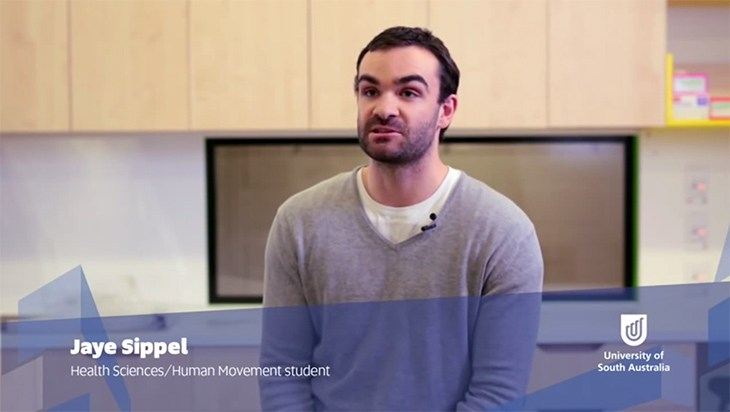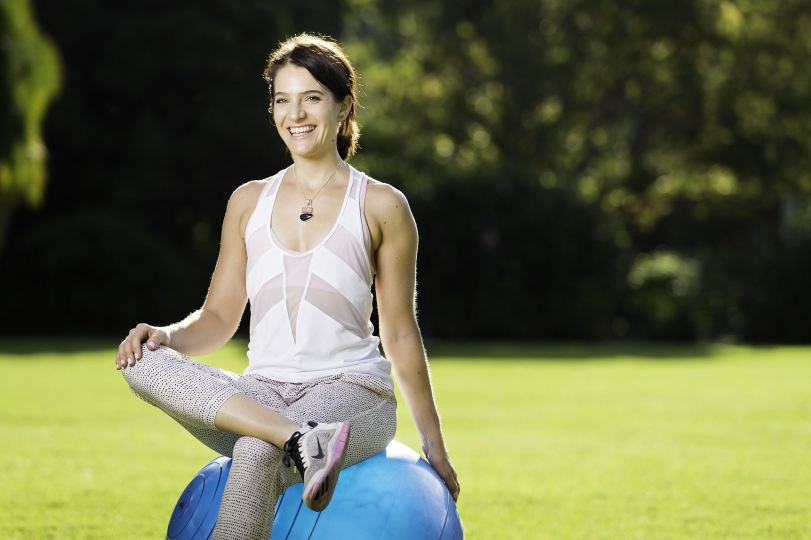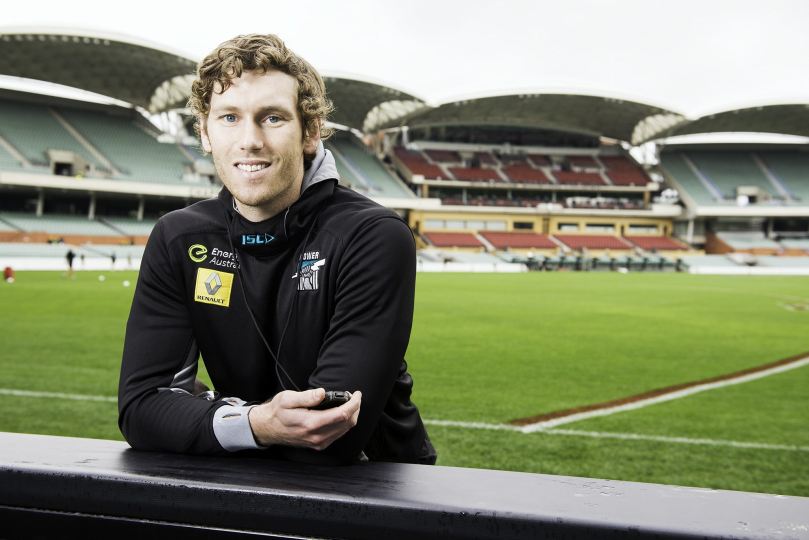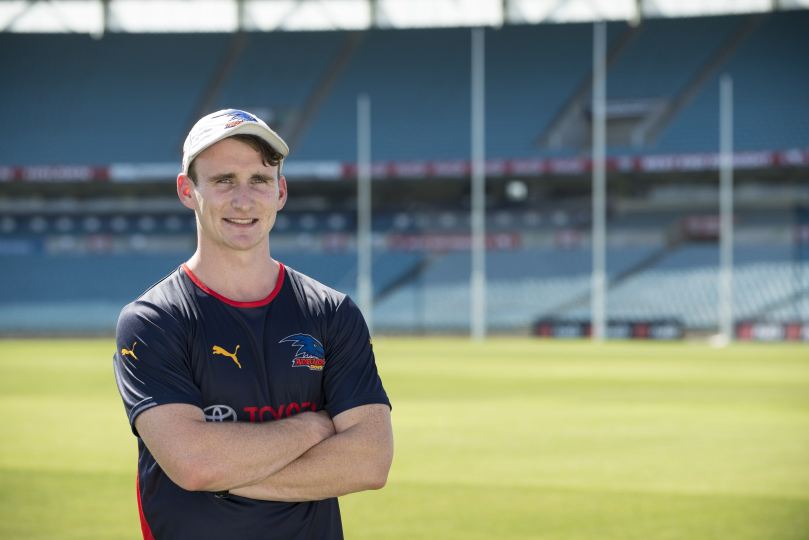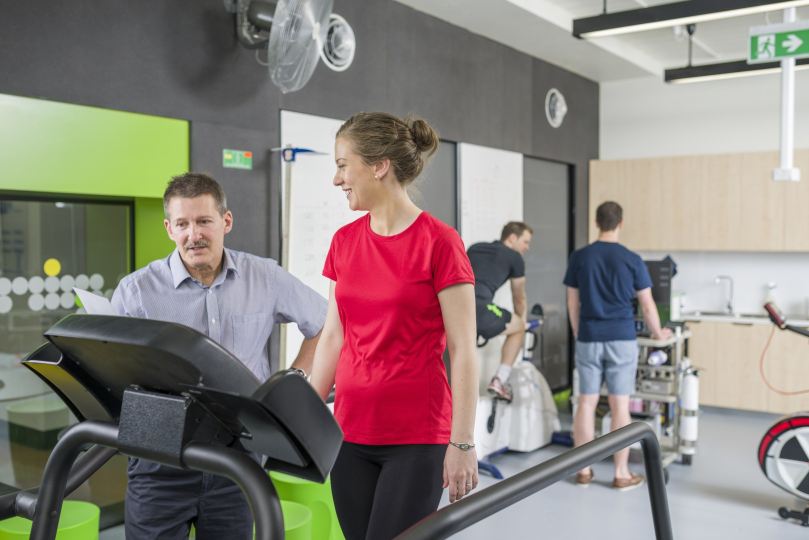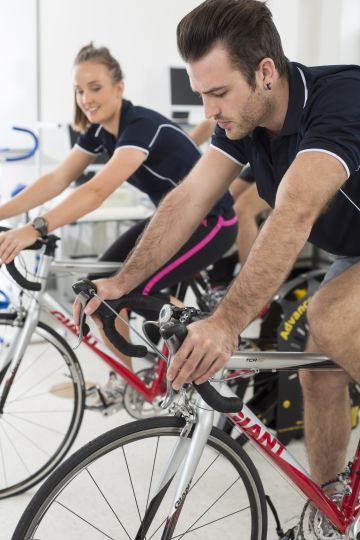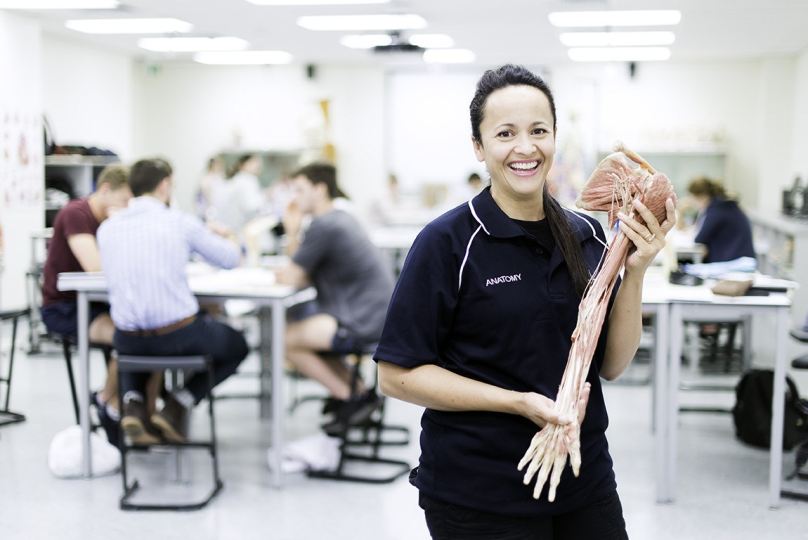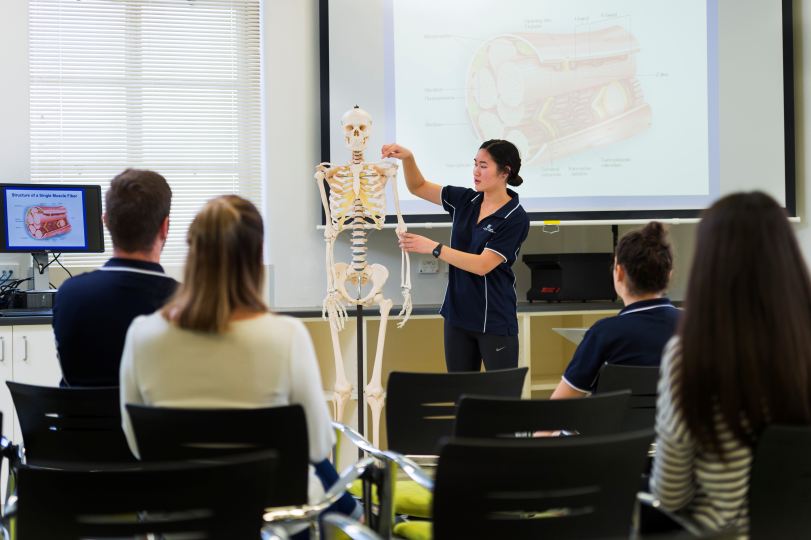Bachelor of Human Movement
Degree Level Undergraduate
Year 2025
You're considered an Australian student if you are any of the following:
Degree Level Undergraduate
Year 2025
Entry Scores
2025 Guaranteed Entry
Year 12 (ATAR-based): 75.00
Year 12 (Grades-based): A,B,B
TAFE/RTO: DIP
View Guaranteed Entry Info
2024 Cut-Offs
Year 12 (ATAR-based):
- Internal: 70.00
TAFE/RTO: Dip
View full entry requirements
The admission criteria have been grouped to assist you to easily find the information most relevant to your circumstances. However, you may fit into more than one and the university will consider applicants against each of the relevant criteria.
Certain conditions apply. For more information refer to Appendix 4 of the University's Selection and Entry policy.
Applicants are required to meet one of the following criteria with a competitive result, and demonstrate that they fulfil any prerequisite requirements and essential requirements for admission:
Recent secondary education
Meet any prerequisite requirements with a minimum grade of C- or equivalent
AND
Applicants who have not achieved the Selection Rank required for automatic selection may be selected for any remaining places based on the grades of their year 12 subjects.
OR
Higher education study
OR
Vocational Education and Training (VET)
OR
Work and life experience
Students commencing in July will follow an alternate degree structure to accommodate starting in Second Semester.
1ComparED (QILT) Graduate Outcomes Survey 2021-23– Full-time Employment Indicator (Domestic Undergraduate). SA public universities. 2The only university in SA to have all its assessed Human Movement and Sports Science research rated well-above world standard. 2018 Excellence in Research for Australia (ERA). 3Ranked #43, 2024 THE Young University Rankings.
Exercise and physical activity positively impacts human life in a variety of ways - biologically, psychologically and socially. In this customisable and industry-relevant degree, you'll develop a well-rounded understanding of these impacts on human health.
You will develop a solid foundation in how the human body works, and can align your studies with your career aspirations by choosing one of two primary streams in either Exercise and Sport Science or Health and Physical Education.
This hands-on degree includes practical learning in brand-new, industry-leading facilities in our Sports Science Hub. Located within the SASI building alongside elite athletes, test your performance and analysis skills in our biomechanics, exercise physiology, and exercise teaching labs under the guidance of leading exercise and sport science experts.
You'll complete at least 75 hours of industry placement, allowing you to build professional networks while you study. You'll graduate with practical experience in areas including human movement, health and physical education, outdoor education, exercise science or health and wellbeing.
Tailor your degree even further and broaden your knowledge by selecting a secondary study stream from a wide range of options.
If you think secondary school teaching is for you, apply for the Bachelor of Human Movement/Master of Teaching (Secondary).
Students who undertake activities where interaction with patients/the public is required for their degree, such as field or industry placements/visits and in university clinics and gyms, must demonstrate they meet mandatory pre-placement conditional requirements. These include criminal history clearance, a Working with Children Check and immunisation requirements.
Please visit the Clinical Placement Unit for information on key requirements, and to access the full student checklists.
The Bachelor of Human Movement offers an exciting combination of theoretical, conceptual and hands on learning.  From your first year, you can select from primary streams in either Exercise and Sport Science or Health and Physical Education.
From your first year, you can select from primary streams in either Exercise and Sport Science or Health and Physical Education.
If you choose to study the Exercise and Sport Science stream, you’ll develop hands-on skills in the SASI facility to maximise human health and performance. You can also study a secondary stream in Advanced Exercise and Sport Science, Rehabilitation Sciences, Sports Coaching, Health Promotion or Nutrition.
If you pursue the Health and Physical Education Stream, you can study a second learning area chosen from a wide range of options including Outdoor Education, Mathematics, Science, English and Nutrition. Visit the Health and Physical Education (H&PE) teacher page to find out more.
During your first year of study, you'll develop a strong foundation in:
Second year studies will focus on:
This degree teaches you practical skills and effective communication techniques to interact confidently with clients and peers, complete client screenings, conduct laboratory and field testing, interpret scientific research, and design and implement exercise and training programs.
You can gain an extra qualification and broaden your career prospects by completing a Diploma in Languages.
UniSA is SA’s No 1. University for human movement and sport science research.1  World-class teaching staff and state-of-the-art learning facilities make this degree a great choice for students passionate about exercise and physical activity.
World-class teaching staff and state-of-the-art learning facilities make this degree a great choice for students passionate about exercise and physical activity.
Get hands-on in brand-new facilities in our Sports Science Hub located in the new SASI site. Capture 360° motion-capture footage in our biomechanics lab, shape training routines in our Exercise Teaching space, and measure body capacity in our Exercise Physiology lab, including a world-standard Bod Pod to measure body composition.
Graduates are prepared for careers in sports organisations, health and fitness centres, sports performance laboratories, community health, rehabilitation settings, and as physical activity providers.
You'll complete at least 75 hours of industry placement, allowing you to build networking opportunities while you study. You'll graduate with practical experience in the areas of human movement, health and physical education, outdoor education, exercise science or health and wellbeing.
In the third year, you may have the opportunity to study overseas by completing an international exchange in countries such as Norway, Canada, United States or the United Kingdom.
1The only university in SA to have all its assessed Human Movement and Sports Science research rated well-above world standard. 2018 Excellence in Research for Australia (ERA).
Depending on your primary chosen stream, human movement graduates will be able to consider careers such as:
Students in the Health and Physical Education stream can continue their studies with the Master of Teaching (Secondary), leading to teach Health and Physical Education (up to Year 12) and Junior Science (up to Year 10), as well as an additional learning area depending on your elective choices. For more information on the subjects you'll be able to teach, visit the Health and Physical Education (H&PE) teacher page.
Students in the Exercise and Sport Science stream are eligible to apply for accreditation and registration as an Accredited Exercise Scientist through Exercise and Sport Science Australia (ESSA), as long as you have completed the required hours of practical experience.
Become even more employable by combining your Bachelor of Human Movement degree with another degree. With just one year of extra study you can graduate with a double degree in Nutrition and Food Sciences or Business (Sport and Recreation Management).
Other postgraduate coursework areas include physiotherapy, business, social work, primary teaching and research.
View our guide on Active Careers for more information.
Have any questions? We're here to help! Contact Adelaide University's Future Student Enquiries Team.
To apply:
*There are two SATAC codes – one for this degree, and one for this degree packaged with the Master of Teaching. You can apply to study this degree on its own. However if you already know you would like to combine it with a Master of Teaching, you can apply for both together.
Australian
There are other pathways you can follow to study this degree, including:
International
There are other pathways you can follow to study this degree, including:
This degree is available for deferment. This option is made available by responding to your offer during the application process via the SATAC website. Applicants who receive an offer into a midyear degree are eligible to defer for six months.
Every year, over 2,500 UniSA students are supported in their studies through scholarships and grants worth millions of dollars. Check out the scholarships below. One of them may be perfect for you. Visit our scholarships page for more.
$5,000 scholarship for South Australian students with an ATAR of 99 who enrol to study a UniSA undergraduate degree.
Up to $10,000 per annum (full time) for South Australian students who obtain an ATAR of 99.95 or IB equivalent and enrol to study at UniSA.
Our campuses are home to fantastic facilities including modern lecture theatres, libraries, workshops and laboratories, as well as spaces that simulate real work environments. But you’ll also discover that your journey at UniSA is about social experiences, healthy living and getting involved. You’ll find student sports and fitness facilities, community clinics, tech zones and chill-out spaces. There are campus sport activities to keep you active, and if you are keen to explore the social side of university life, there are movies, cooking demonstrations, parties and loads more.
Adelaide also has a variety of accommodation options to suit different requirements and budgets. Options include dedicated student accommodation and private rentals. See our long-term accommodation pages, or explore our student accommodation by Scape on Bank Street in Adelaide’s lively cultural precinct, an ideal location for students. It is within easy reach of UniSA’s city and metropolitan campuses, Rundle Mall shopping, the Central Market, Chinatown, and the West End’s vibrant nightlife. It is also across the road from the Adelaide train station, and on bus and tram routes.
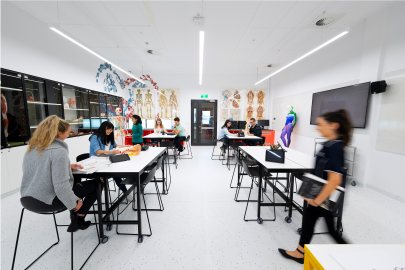
As a hands-on degree, you’ll benefit from UniSA’s practical approach to learning. You’ll begin your studies on-site at our UniSA campus. If you study the Exercise and Sport Science stream, you will also get to learn in the industry-leading SASI site designed for sports science testing, analysis and performance.
SASI facilities you can learn in include:
You’ll also get to use purpose-built UniSA facilities including:
You’ll also have access to a range of on-campus spaces including modern lecture theatres, collaborative teaching rooms and relaxed student lounges.
As program director I am responsible for the provision of academic leadership in the planning, management, development, improvement, quality assurance and growth of the suite of human movement degrees. I head a team of outstanding teachers and researchers who educate highly capable graduates who can engage in a wide range of industry and community settings, and can meaningfully contribute to a healthier and more just society.
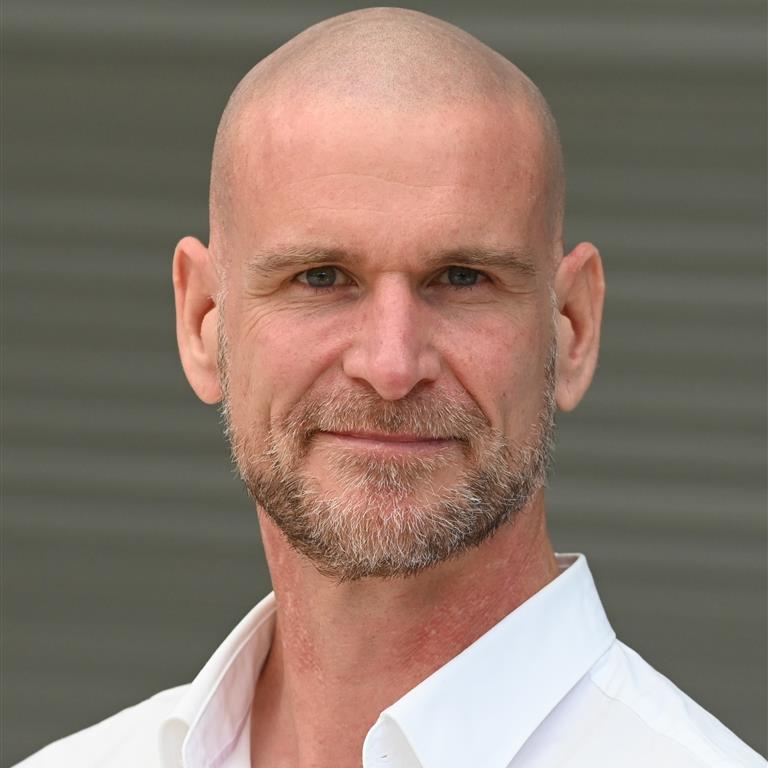
The way you apply for UniSA will depend on the undergraduate or postgraduate coursework degree you're interested in studying.
The majority of applications are made via the South Australian Tertiary Admissions Centre (SATAC). Check out more information on the SATAC website and follow the appropriate process for your degree of interest.
There are a small number of degrees that you need to apply for through direct application processes. The process you need to follow will be listed on the 'How to Apply' section of the degree homepage, but you'll also be taken to where you need to go if you hit the 'apply' button.
If you are interested in studying one of our 100% online degrees you'll need to apply directly to UniSA Online.
You can find more information about the application processes for UniSA on our How to Apply webpage.
If you're more interested in applying for a postgraduate degree by research, check out and follow the information in our step by step guide to applying.
Applications for all degrees will close ahead of study commencing, but the timelines may vary for undergraduate and postgraduate degrees.
The deadline to apply to study a degree at UniSA for semester one (commencing late February) and be guaranteed equal consideration is generally in very late November or early December. While you may be able to apply after this date, you are not guaranteed to be considered equally with other applicants and your application may not be assessed in time for the main round of offers. More competitive degrees may not make any offers after the main offer round. Find more information on the Key Dates section of the SATAC website, but you can also call the Future Student Enquiries team for more information on 08 8302 376.
Many postgraduate by coursework degrees do not have set closing dates. The exceptions are highly competitive degrees, so it is best to check – either on the degree homepage on the SATAC website or by checking with our Future Student Enquiries team.
As most postgraduate applications are assessed as they are submitted and offers are continuous, there are no set closing dates for applications. Degrees can be filled and closed with little notice so it is best to apply as soon as possible to avoid missing out on a place. For more information, please contact our Future Student Enquires team on (08) 8302 2376 or submit an enquiry.
You may be eligible for credit or advanced standing for your chosen UniSA degree based on your previous studies, if they are in a related area and completed within a certain timeframe. Receiving credit or RPL will reduce the number of courses you undertake within the degree, and may also reduce the overall duration of your degree. You can read more about our pre-existing credit agreements through our online Credit Assessor. If you have related industry experience, you may also be eligible to receive recognised prior learning (RPL) for this experience. Credit and RPL is assessed by the Program Director once you've received an offer, and you apply through UniSA's current student experts, Campus Central.
Future Student Enquiries welcomes the opportunity to meet with you to discuss your study options at UniSA. We can discuss degree information, entry requirements and pathways, applications, general career outcomes and student life, so you have the information to make the best study decision for your future. Head to our Book an Appointment webpage to find a date and time to speak with us, and take your next steps on journey to university study.
